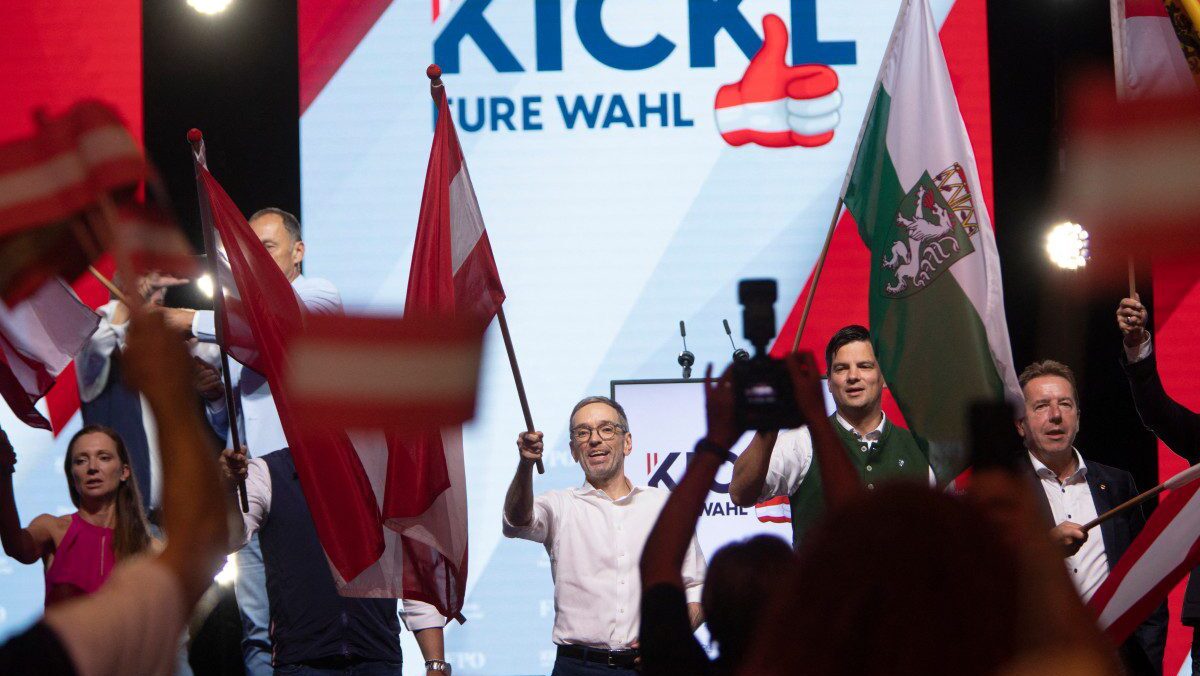
The chairman and top candidate of the Freedom Party of Austria (FPÖ) for the Austrian National Council (Nationalrat) election Herbert Kickl holds an Austrian flag after kicking off his party’s electoral campaign, on September 7, 2024 in Graz, Styria. General elections in Austria will take place on September 29, 2024.
Photo: Alex HALADA / AFP
With less than two weeks to go until Austrian voters go to the polls, the latest projections indicate that the right-wing, anti-globalist Freedom Party (FPÖ) is on course to secure victory with its best-ever electoral result.
According to polling by the Institut für neue soziale Antworten (Institute for New Social Answers, INSA), the opposition FPÖ is predicted to receive 29% of the votes at the national elections on September 29th—two percentage points more than its best result of 27% in 1999. The governing centre-right People’s Party is polling at 23%, and its coalition partner, the Greens, are at just 8%.
The other opposition parties that will likely make it into parliament are the Social Democrats (21%), the liberal NEOS party (8%), and the satirical Beer Party (5%).
What makes the poll numbers even sweeter for FPÖ is that—according to INSA—it has the potential to gain the support of 35% of voters, and it also has the most loyal supporters, with 24% of voters saying they would choose FPÖ no matter what.
The party has been able to increase its popularity due to its tough stance on migration. This comes as Europe still faces a wave of illegal migrants from Africa and the Middle East. Germany’s announcement of border checks at all its borders, impacting neighbouring Austria, has further fueled this trend.
Based on the opinion polls, FPÖ is the only party capable of forming a government with only one other coalition partner; the others would have to seek out an alliance with at least two other political forces. Nevertheless, the mainstream parties are likely to shun the FPÖ, just as the German establishment is doing with the anti-immigration Alternative für Deutschland (AfD).
Chancellor Karl Nehammer of the People’s Party would rather collaborate with the Social Democrats despite their leader Andreas Babler espousing left-wing policies. As the two together won’t have a sufficient mandate for a majority in parliament, they will have to rely on either the Greens or NEOS for additional support.
Parties suspended their election campaigns and events in recent days due to the severe storm that is wreaking havoc in Central Europe and has killed four people in Austria, but party leaders are trying to turn the disaster to their advantage, outbidding each other on who can promise more support for the victims.
However, as the flood recedes, the parties are expected to restart their campaigns and take part in rallies and election debates in the days ahead.
